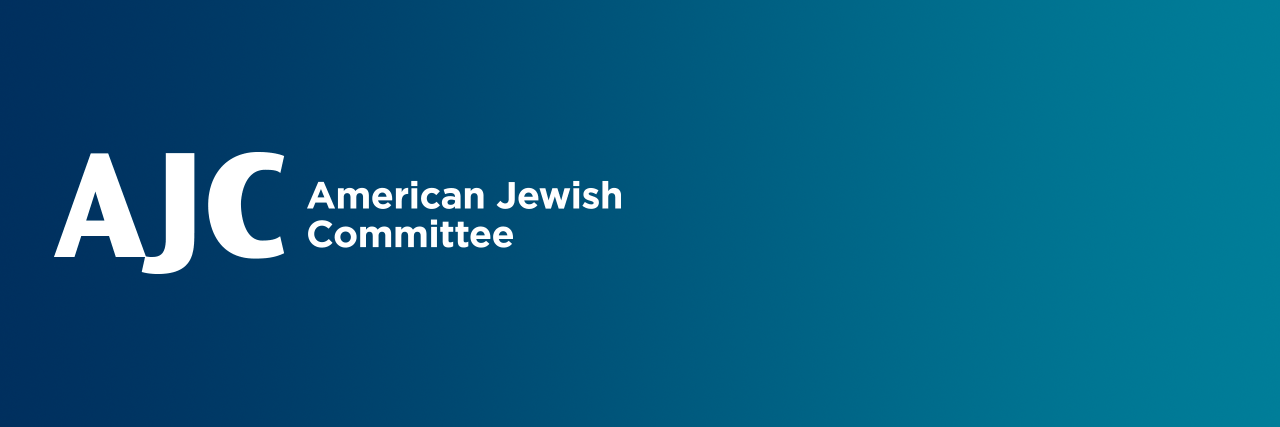April 21, 2023
The following column originally appeared in Times of Israel.
By Mark H. Alcott
In the early stages of Russia’s war against Ukraine last year, I traveled to Central Europe with a small group of leaders from the American Jewish Committee. It was an intense, profound experience.
I thought about this trip as we mark Yom HaShoah this week.
One cannot travel to Poland without visiting Holocaust sites to bear witness. On this trip, I journeyed to Belzec, once a Nazi death camp in southern Poland near the Ukrainian border. Belzec existed for one reason—to kill people. There were no barracks. No kitchens. No need.
Trains carted Jews here by the tens of thousands. Within an hour of their arrival, they were gassed to death and thrown into huge burial pits. More than 430,000 Jews were murdered at Belzec in 1942, the only year of its operation.
Belzec was then liquidated; the evidence of its crimes obliterated in the hope no one would notice. The graves were opened. Corpses were cremated. The Nazis even planted trees and crops to disguise it as a farm. Belzec was largely forgotten until the 1990s, when AJC, in cooperation with the Polish government, began efforts to turn this sacred space into a memorial, which opened in 2004.
Our delegation noted a crucial point: There was no Israel in 1942. No Jewish State. Think about what that means: No Israeli consulates to provide Jews with exit visas; no Jewish state to provide Jews with a place of refuge; no Israeli diplomats to sound the alarm in world capitals; no Israel to defend European Jewry.
No other country in the world was willing or able to save the Jews. The result was the Holocaust, when the ashes of Jewish victims blackened the sky, while the world turned its back. So ask not whether it is “appropriate” or “democratic” or “fair” for Israel to exist today as a Jewish state — the only one in the world. You have your answer.
Belzec also delivered a more intense, personal connection I had not anticipated. Contemporary memorials often include a wall with names of the victims. Think the 9/11 Memorial at Ground Zero and the Vietnam Veterans Memorial in Washington. But there were simply too many victims at Belzec; its wall contains 1,200 first names of victims, all common Jewish names of the era.
I stared at the list and suddenly received a huge emotional jolt. There was my name, right there, on the list of victims! My Jewish name: Mendel. I am the son and grandson of Eastern European Jews, who lived for generations in and around Central Europe before coming to America in the first part of the 20th century.
I was born just three weeks before the Nazis launched World War II by invading Poland in 1939. If my family had stayed there longer, if I had been born there, I would have been Mendel Ben Chaim – Mendel, son of Chai. Chai was my father’s name. It is the Hebrew word for life. But in this case, it means the opposite, because my father’s name was also on the wall.
As Mendel Ben Chaim, I might well have been among the 430,000 Belzec victims; but almost certainly, I would have been one of the 6 million Jews who perished in the Holocaust.
But God had a different plan for me. Instead of Mendel Ben Chaim of Central Europe, I was born Mark Alcott, in New York City. Instead of being a victim, I have had a wonderful life, been blessed with an extraordinary family, engaged in deeply satisfying professional and community activities, and encountered the death camps only as a visitor decades after the fact.
I must always keep that in mind. I always do, just as we all should on Holocaust Remembrance Day and every day, with anti-Jewish hate crimes increasing in the U.S. and throughout the world.
We must never stop our vigilance against antisemitism.
We must never forget.
Mark H. Alcott is an attorney and member of the Executive Committee of American Jewish Committee Westchester/Fairfield.


